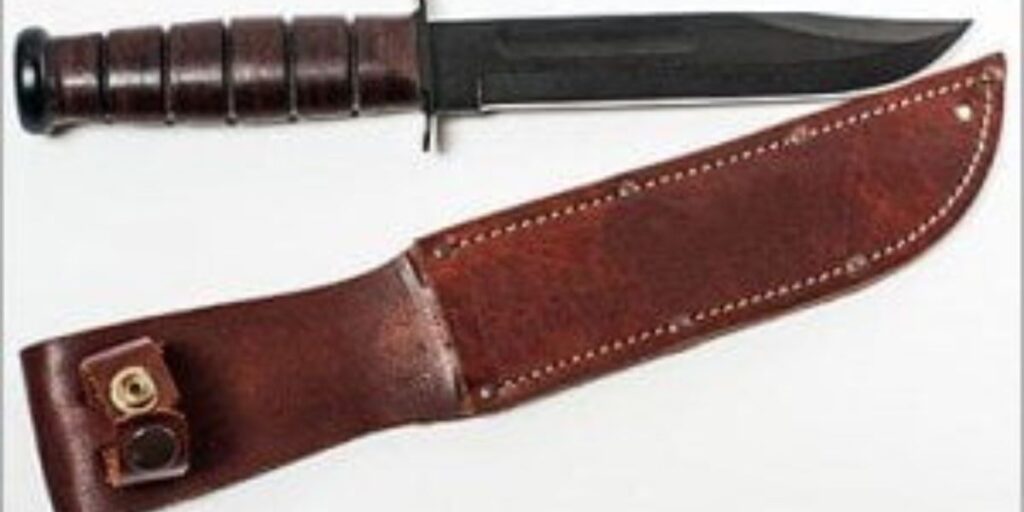Nebraska has specific laws regarding knife ownership and carry that every resident and visitor should understand. While the state provides more leniency compared to others, there are still restrictions on certain types of knives and the manner in which they can be carried. This guide explores Nebraska’s knife laws, including legal ownership, carrying regulations, restrictions, and penalties for violations.
Knife Ownership Laws in Nebraska
What Knives Are Legal to Own?
In Nebraska, most knives are legal to own. Residents can legally possess the following types of knives:
- Pocket knives
- Folding knives
- Hunting knives
- Fixed-blade knives
- Bowie knives
- Machetes
- Butterfly knives
- Throwing knives and stars
Prohibited Knives
While Nebraska law allows ownership of most knives, it does restrict the possession of ballistic knives. A ballistic knife, which has a detachable blade that can be fired from the handle, is considered illegal to own or carry in the state.
Knife Carry Laws in Nebraska
Open Carry Regulations
Nebraska allows the open carry of most knives, meaning individuals can visibly carry a knife without legal repercussions. However, local ordinances in cities such as Omaha and Lincoln may impose additional restrictions on open carry.
Concealed Carry Laws
Concealed carry laws vary based on the type of knife:
- Pocket knives with a blade length of 3.5 inches or less: Legal to carry concealed.
- Folding knives exceeding 3.5 inches: Could be considered illegal if carried concealed.
- Fixed-blade knives: Generally considered illegal to carry concealed.
- Dirks, daggers, or other stabbing weapons: Illegal to carry concealed.
Carrying a prohibited knife concealed without a permit can lead to legal consequences. Individuals seeking to carry a knife concealed should carefully review local laws or apply for a concealed weapon permit if applicable.
Restrictions Based on Location

Certain locations impose strict restrictions on knife carrying, including:
- Schools and School Grounds: It is illegal to carry a knife on school property, including public and private institutions.
- Government Buildings: Knives are generally prohibited in courthouses, police stations, and other government facilities.
- Public Events: Some events and venues may have restrictions on carrying knives, even if they are otherwise legal under state law.
Penalties for Violating Knife Laws
Violating Nebraska’s knife laws can result in fines, misdemeanor charges, or, in severe cases, felony charges.
- Carrying a concealed prohibited knife: Class I misdemeanor, punishable by up to 1 year in jail and a fine of up to $1,000.
- Possession of a ballistic knife: Felony offense, with penalties including potential prison time.
- Bringing a knife onto school property: May result in criminal charges and severe legal consequences.
Local Ordinances and Preemption Laws
Nebraska does not have a statewide knife law preemption, meaning cities and counties can enforce stricter knife regulations. For example:
- Omaha: Requires individuals to have a concealed carry permit for knives exceeding certain blade lengths.
- Lincoln: Has restrictions on carrying certain knives in public spaces.
Before carrying a knife in Nebraska, it is advisable to check local ordinances to avoid potential legal issues.
Self-Defense and Knife Use
While Nebraska allows self-defense claims in criminal cases, using a knife for self-defense must meet the legal standards of justifiable force. Excessive or unnecessary force could result in criminal charges, even if the individual was acting in self-defense.
Future Changes to Nebraska Knife Laws
Legislation regarding knives is subject to change. Advocacy groups and lawmakers occasionally push for reforms, such as statewide preemption laws or expanded concealed carry permissions. Staying updated on legal changes can help ensure compliance with the law.
Conclusion
Understanding Nebraska’s knife laws is essential for responsible ownership and carry. While most knives are legal to own and open carry is generally permitted, restrictions on concealed carry and prohibited locations should be carefully observed. Checking local ordinances and adhering to state laws can help knife owners avoid legal trouble while exercising their rights safely and responsibly.





More Stories
Understanding Nebraska’s Knife Laws: Legal Ownership, Carrying, and Restrictions
Understanding Nebraska’s Knife Laws: Legal Ownership, Carrying, and Restrictions
Understanding Nebraska’s Knife Laws: Legal Ownership, Carrying, and Restrictions